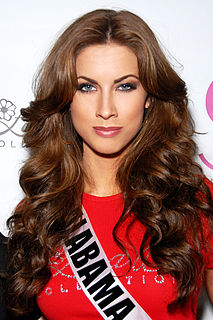A Quote by Gillian Armstrong
When I was a young filmmaker starting out, I was really snobby about all the affirmative action for women filmmakers because I felt it should be about your talent, and I made a film that won awards, and people wanted me.
Related Quotes
Roger Ebert was such a champion of underrepresented filmmakers. He was a very big deal to me. It shows the power of critics. People who write about film, like you, can really affect the confidence of a young filmmaker. He did that for me, so it was such a pleasure to have an opportunity to talk about Roger in the movie.
Affirmative action was designed originally for "women and other minorities" but the phrase has become just another tortured euphemism. Female conscientiousness and eagerness to please have always made women good students and natural test takers. Jews have gloried in scholarship throughout the ages, and Asians of both sexes score so high on SATs and IQ tests that they regard affirmative action as an impediment. Affirmative action really means favoritism for blacks for the sake of racial peace, but the favor is pure chimera, and so, increasingly, is the peace.
Alejandro Amenábar is a very interesting filmmaker. I had really liked The Others, which was a movie he made with Nicole Kidman a few years ago. He made a very compelling case about how much he wanted me to be in this movie. Whenever a really passionate, talented filmmaker seems to have an interest in me, I take it very seriously because I like to work.
When industry people see something different they don't know what to do with it, so filmmakers who make films about women, they kind of fall through the cracks. If a woman filmmaker makes film about war, like [Kathryn] Bigelow, they say "Okay, this is a war film, it has ninety percent men in it, we know what to do with it." But then she still gets attacked for not doing it properly. [...] But even though it bothers me I don't want to dwell on the sex and gender thing.
I got very self-conscious about the way I look. So I, especially with young people coming into the industry and young actors, I feel it's really terrible to start with their looks. Right? Because especially for women, it just puts you in your head at a time when you should really be focused on your work and what you're saying and doing and not how you look.
I think that we need more economic-based solutions to the problems afflicting the Black community, and I think that that's a way to redefine affirmative action. I grew up with poor white people in West Virginia, and I know there's a culture of poverty. I know that I've seen white people perform exactly the same pathological forms of behavior as Black people do when they're systematically deprived, whether it's getting pregnant, doing drugs, dropping out of school, whatever we're talking about. I think that we should have affirmative action for poor white people too.
Affirmative action is not going to be the long-term solution to the problems of race in America, because, frankly, if you've got 50 percent of African-American or Latino kids dropping out of high school, it doesn't really matter what you do in terms of affirmative action. Those kids aren't going to college.





































